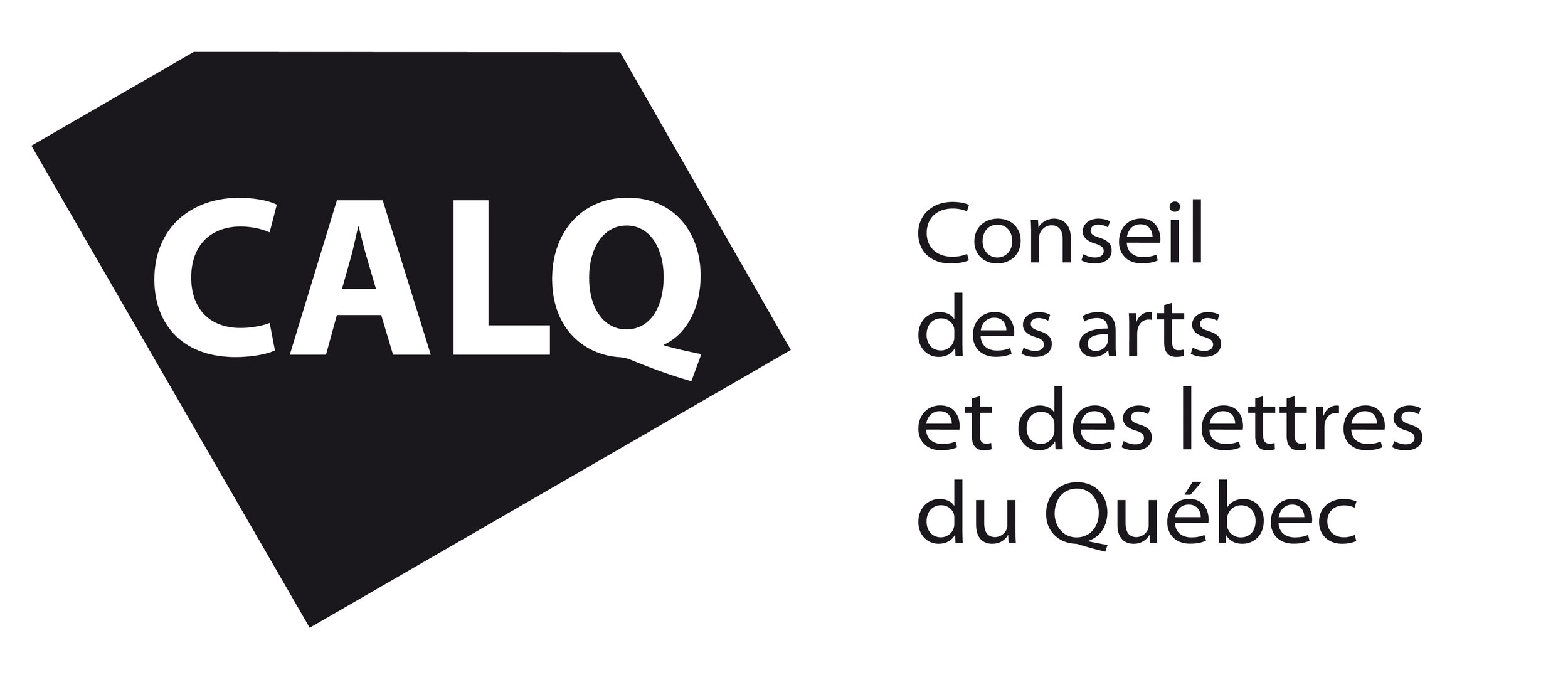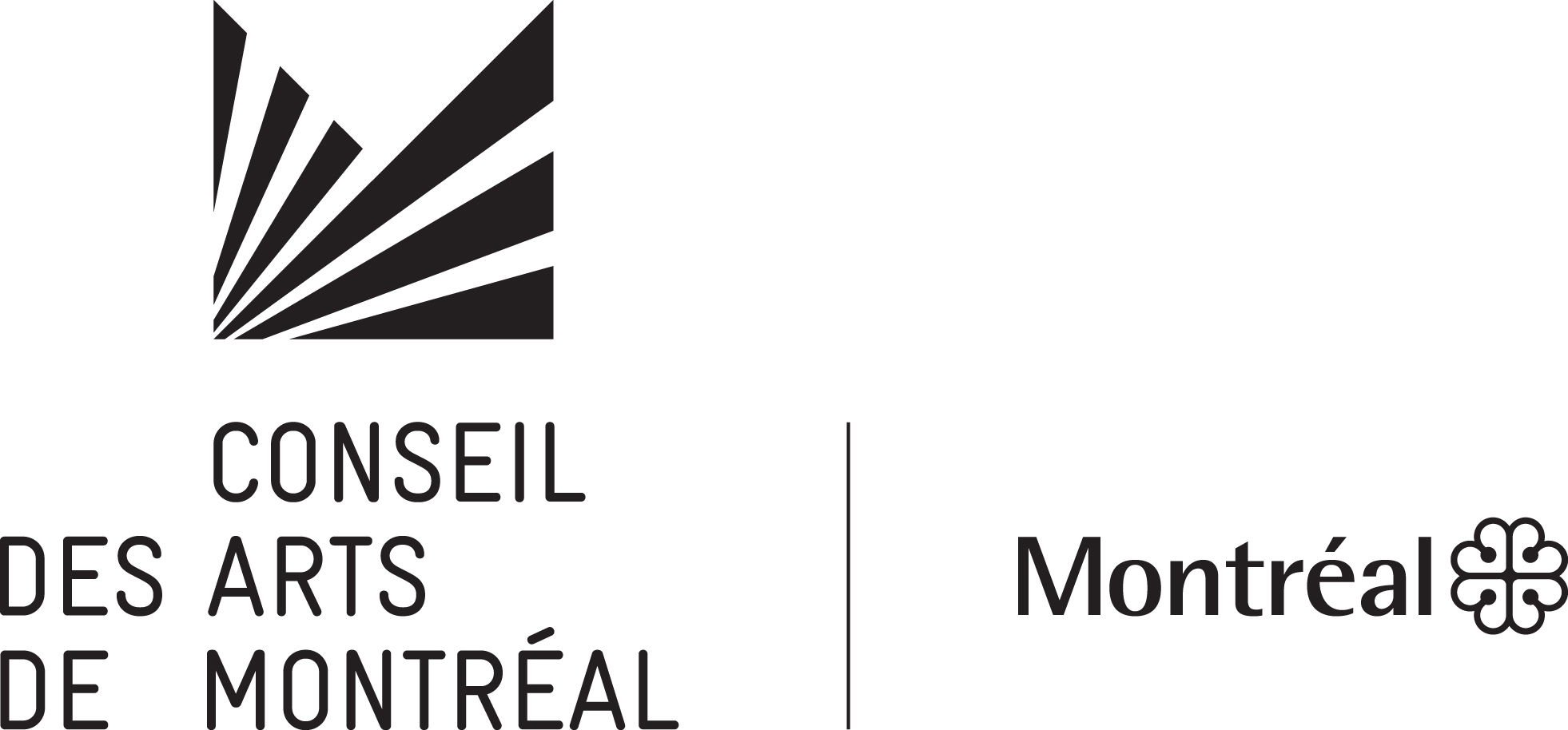Mandate and mission
Dazibao is an exhibition center dedicated to the dissemination and outreach of contemporary image-based practices, supporting research, experimentation and critical reflection by valorizing practices rooted in the social issues of today.
Through rigorous, varied and relevant programming — solo and group exhibitions, film and video programs, artist residencies, publications, public programs, outreach projects — the center investigates the discourses, uses and modes of dissemination of images, raising artistic, historical and social questions that connect with multiple audiences and communities. By bringing together works from local, national and international practices, Dazibao places local art within a more global discourse and exposes the local community to art from elsewhere.
Dazibao is a center dedicated to artists, offering quality accompaniment and attentive support from the conception of a project to its dissemination. Dazibao works to ensure that each collaboration with an artist provides an experience that has a significant impact on the development of their art and the visibility of their practice.
At the heart of Dazibao's mission is our commitment to artists, expressed through an unwavering support for the development of their practice. Dazibao often works closely with artists over several years, supporting all stages of production and distribution. Dazibao accompanies artists from conception to realization and dissemination, through carefully developed public engagement and communications. This long-term involvement aims to strengthen the artistic approach and substantially promote professional development within a framework that is conducive to research, experimentation and creation. Furthermore, this special rapport with the artists ensures that the organization has a thorough understanding of the projects, enabling it to contextualize the works for the public in an insightful and accessible way. Dazibao's commitment to supporting practice also regularly extends to distribution across other platforms, actuated by the many partnerships the center has developed.
Dazibao offers a versatile space, equipped with state-of-the-art facilities and the flexibility to adapt to constantly evolving practices, while maintaining museum-quality standards. Dazibao is committed to presenting recent, often new works by Québec and Canadian artists with diverse artistic practices and at different stages of their professional careers. To offer audiences a multiplicity of perspectives, or to put new or local works into perspective, such works are regularly presented alongside works by artists from abroad or more historical works, allowing their relevance to be inscribed within a broader art ecology.
As Dazibao's mandate is intrinsically linked to image-based practices, and given the prevalence of image circulation in today's world, the center is a fertile ground for a wide range of conversations addressing a multiplicity of societal issues. Since its very foundation, Dazibao has maintained that current artistic research and creation develop in constant dialogue with history and society.
A not-for-profit organization, Dazibao is an attentive, open and inclusive space that upholds the principles of equity, parity, diversity and cultural hybridity, affirming that art is a field of knowledge that enables us to explore and rethink our relationship with the world to better inhabit it. Committed to the importance of accessibility to culture, the center's activities are free and open to all.
History
Founded and operating as an exhibition space since 1980, Dazibao was one of the first exhibition centers in Québec and Canada to devote itself exclusively to the dissemination of photography. It was quickly established to become a place for encounters and reflection, where the image is affirmed as a vehicle for social change and a way of better understanding the world. Although the center has embraced the full range of image-based practices since the early 1990s, its mission today remains to be an inclusive space for exchange and experimentation, a place for pushing the envelope and research, both a witness to and a participant in the evolution of image-based practices and the role of the image in the world. In this mindset, and in order to instill lasting practices and discourses, Dazibao launched its publishing program in 1996, now recognized for its rigor and editorial quality, with over 80 bilingual works. Since 2019, each printed publication has been accompanied by an augmented digital version, incorporating video excerpts or animations, facilitating the circulation of content and the sharing of knowledge.
Consistent with the objective of supporting the development of practices, Dazibao has initiated a number of programs and partnerships over the years: the production-dissemination residency with production center PRIM (2005), the Jeune tête d'affiche competition (2008), the Sessions program (2011), Dazibao satellite (billboards located on the façades of Café Cherrier and Marché Bonsecours, 2011), dv_vd screening evenings with Vidéographe and the Instagram Residency (2018).
In 2009, Dazibao embarked on an important change, in order to acquire quality spaces that could respond and adapt to the various changes taking place among image-making practices. Dazibao left its premises at 4001 Berri to begin a two-year residency at the Cinémathèque québécoise, where it explored different modes of distribution, defining its precise needs. This valuable experience led to a particularly significant relocation in 2014, to Pôle de Gaspé, in the heart of Mile End, one of Canada's foremost creative hubs. The center now develops projects of museum-like standards in a culture of research and creation, essential to the professional advancement of artists while reaching out to new audiences. Occupying a unique place in the milieu's ecology, Dazibao offers atypical image practices a venue adapted to their needs.
In 2020, Dazibao developed a digital component to enhance some activities, including video interviews with artists (Rencontrez l'artiste) and a platform for engagement (La VIEWING ROOM) offering a host of content related to the exhibitions. The Portable Exhibition, an outreach activity offered since 2007 in primary, secondary and college schools, now has a digital version, complete with a pedagogical guide.
Dazibao has played an essential role in the local ecosystem, having organized the first major exhibitions of many artists, as well as introducing a number of international artists to the local scene. Today, at the dawn of its 45th anniversary, Dazibao is an essential reference for the dissemination of contemporary image practices: a mature organization, with a historic perspective but always on the lookout, a vector of change as much as a memory.
Land acknowledgement
Dazibao acknowledges that it is located on the unceded territory of the Kanien'kehá: ka Nation and that Tiohtiá:ke / Montreal is historically known as a gathering place for many First Nations, and today, is home to a diverse population of Indigenous as well as other peoples. Guided by ethics of respect, listening, and awareness, Dazibao commits to a continued reflection regarding the deep-rooted and systemic challenges tied to accessibility and inclusivity in the arts and beyond, and endeavors to apply such reflections to all aspects of its activities and governance.
PACBI Declaration
In solidarity with the Palestinian people, and joining a growing number of cultural workers across Canada, Dazibao commits to the Palestinian Campaign for the Academic and Cultural Boycott of Israel (PACBI). A founding member of the BDS (Boycott, divestment, and sanctions) movement, the PACBI acts to resist the Israeli occupation of Palestine by boycotting Israeli cultural and academic institutions and their products. The boycott does not target individuals. Rather, it aims to address the complicity of these institutions in Israeli apartheid and the artwashing of its oppressive ideologies, structures, and actions.
Dazibao's Board of Directors and its employees support this commitment and oppose the censorship of artistic and intellectual voices speaking out for Palestinian human rights.





